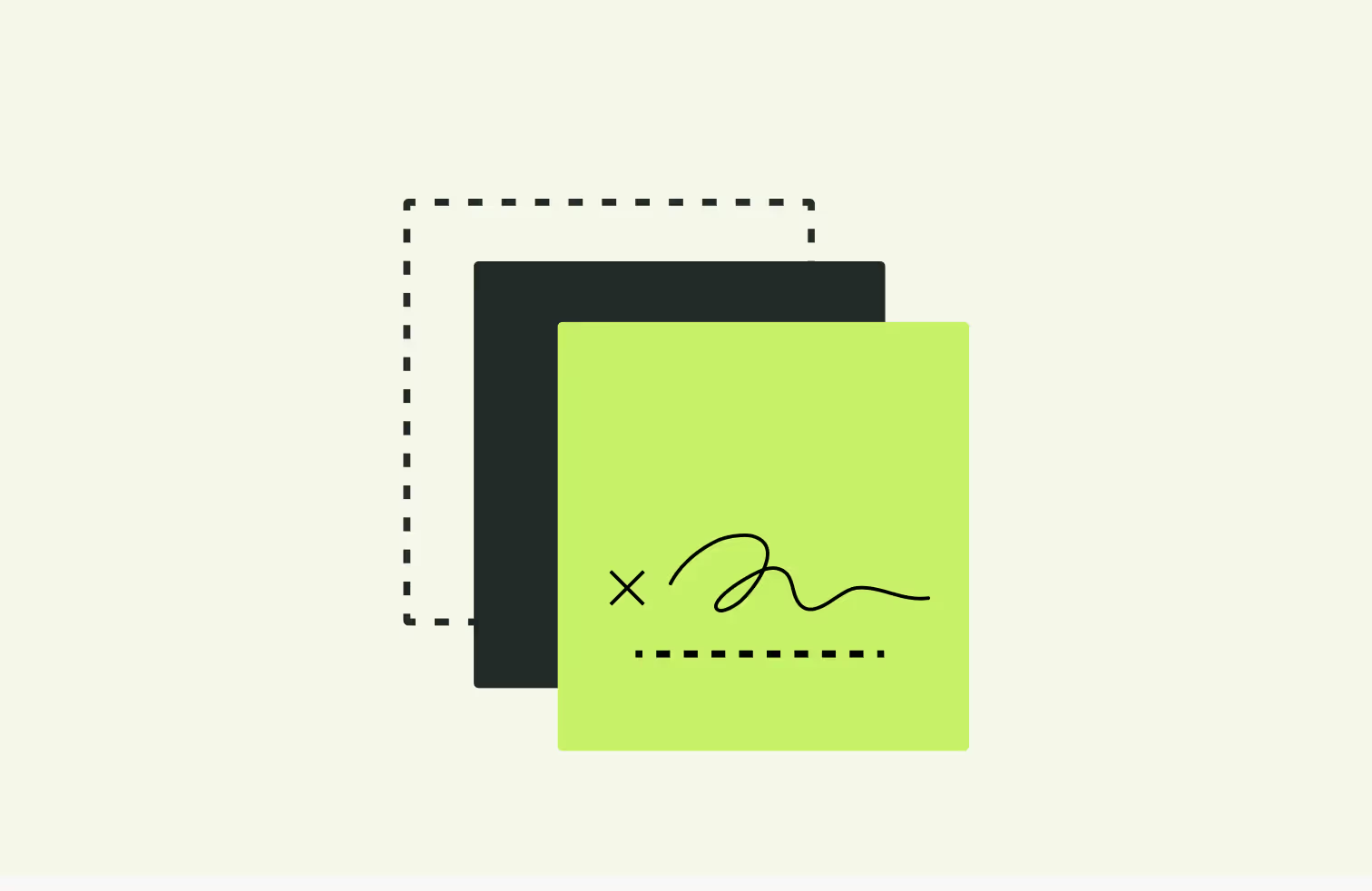Solutions
Customer Support
Resources
Express contracts are one of the most robust and reliable ways to formalize an agreement. But what actually is an express contract, and how do express contracts work in practice? Read this Juro explainer to find out.
An express contract is a legally binding agreement with clearly stated terms, made either verbally or in writing. Within an express contract, the terms of an agreement are clearly communicated between the parties, which removes ambiguity and uncertainty.
‘But isn’t that every type of contract?’ you might be thinking. Well, no actually. Contracts can also be implied instead. These are called implied contracts.
But don’t worry, we’ll talk more about how the two types of contracts compare later in this piece. First, let’s fully understand how express contracts work, and why we use them.

The main requirements of an express contract are the same as for any contract. In order to be legally binding, an express contract must contain all of the core elements of a contract, including:
For parties in the US, there are also two additional requirements that express contracts must meet to be valid. These are:
If just one of these is missing, an express contract might not be legally binding. But if they’re all there, even something as simple as a deal scribbled on a napkin can be considered a valid express contract, as shown in the case of Lucy v Zehmer.
Assuming that all of the contractual requirements are present, once an express contract is signed or agreed upon, the parties are legally bound to fulfill their contractual obligations.
If they don’t, they could be in breach of contract. The consequences of this will depend on the nature of the contract, how severe the breach was, and what the parties agreed in advance.

Most express contracts will include a clause detailing what will happen if there’s a breach – for example a penalty charge for late payment, or early contract termination if certain conditions aren’t met.
But when will an agreement become an ‘express contract’? What does an express contract actually look like in practice? Let’s find out.
Express contracts do not necessarily need to be in writing, they can also be formed verbally e.g. face to face or on the phone. And these carry the same weight legally as paper (or electronic ones), as long as you can prove they contain all the essential elements we mentioned above.
They can also be captured in electronic communications. This means that an email can form a contract. The same applies to text message contracts.
Imagine that you talk to a bathroom fitter about getting a new suite for your home. They send you a letter which says it’ll cost you $5,000. You call them to accept this offer. This is an express contract, as it has an offer (from the fitter to put in that shiny new bath, sink, and toilet), acceptance (your call), and consideration (the $5,000 you’ll pay once they’re done).
Let’s look at another example, this time where an express contract is created via email. Let’s imagine that you put a handbag up for sale on social media. You have an email conversation with an interested person, who agrees to pay $50 for it. These emails create a written express contract – again, we have an offer (to buy the bag for $50) and acceptance (when you say yes), and consideration.

Now let’s imagine that you talk to your neighbor’s daughter and agree to let her mow your lawn every two weeks in return for a small fee. This is a verbal contract, as again we have an offer and acceptance, and consideration. But it’s also an express contract since the terms of the agreement were clearly communicated between the parties, rather than being implied.
That leads us neatly to the final question: what is the difference between an express contract and an implied contract?
The main difference between an express contract and an implied contract is that an express contract involves clear communication between both parties about what the offer is and that it will be accepted. Meanwhile, an implied contract is inferred by behavior and actions, without explicitly stating its terms.
In other words, implied contracts are created when we act in a certain way. They aren’t written down or confirmed verbally, and they don’t have signatures.
A good example of an implied contract is when you eat in a restaurant. When you order your food, it’s implied that you’ll then pay for it at the end of the meal. So while there’s no explicit offer from the restaurant owner (e.g. “I offer you food”), or acceptance from you (“I agree to pay for that food”) before you sit down, you both act in a way that implies this is what will happen.
Express contracts are often more reliable than implied contracts. This is true despite the fact that implied contracts are also legally binding if they satisfy the key requirements of a contract.
However, implied contracts are more ambiguous, simply because they aren’t written down or communicated clearly. This means that they can be harder to enforce if something goes wrong. After all, suing someone for breach of contract is always going to be difficult when the terms haven’t been documented. i
That’s why it’s important to capture your contractual terms and store contracts securely. It's also why it's important to draft contracts carefully to ensure that they express exactly what you need them to.
If you're a fast-growing business that needs help drafting and storing express contracts, you're in the right place. Juro is the all-in-one contract automation platform that enables all teams to streamline the creation, execution and management of routine contracts at scale. To find out more about how Juro can help your business manage contracts, fill in the form below.

Lorem ipsum dolor sit amet, consectetur adipiscing elit. Suspendisse varius enim in eros elementum tristique. Duis cursus, mi quis viverra ornare, eros dolor interdum nulla, ut commodo diam libero vitae erat. Aenean faucibus nibh et justo cursus id rutrum lorem imperdiet. Nunc ut sem vitae risus tristique posuere.

